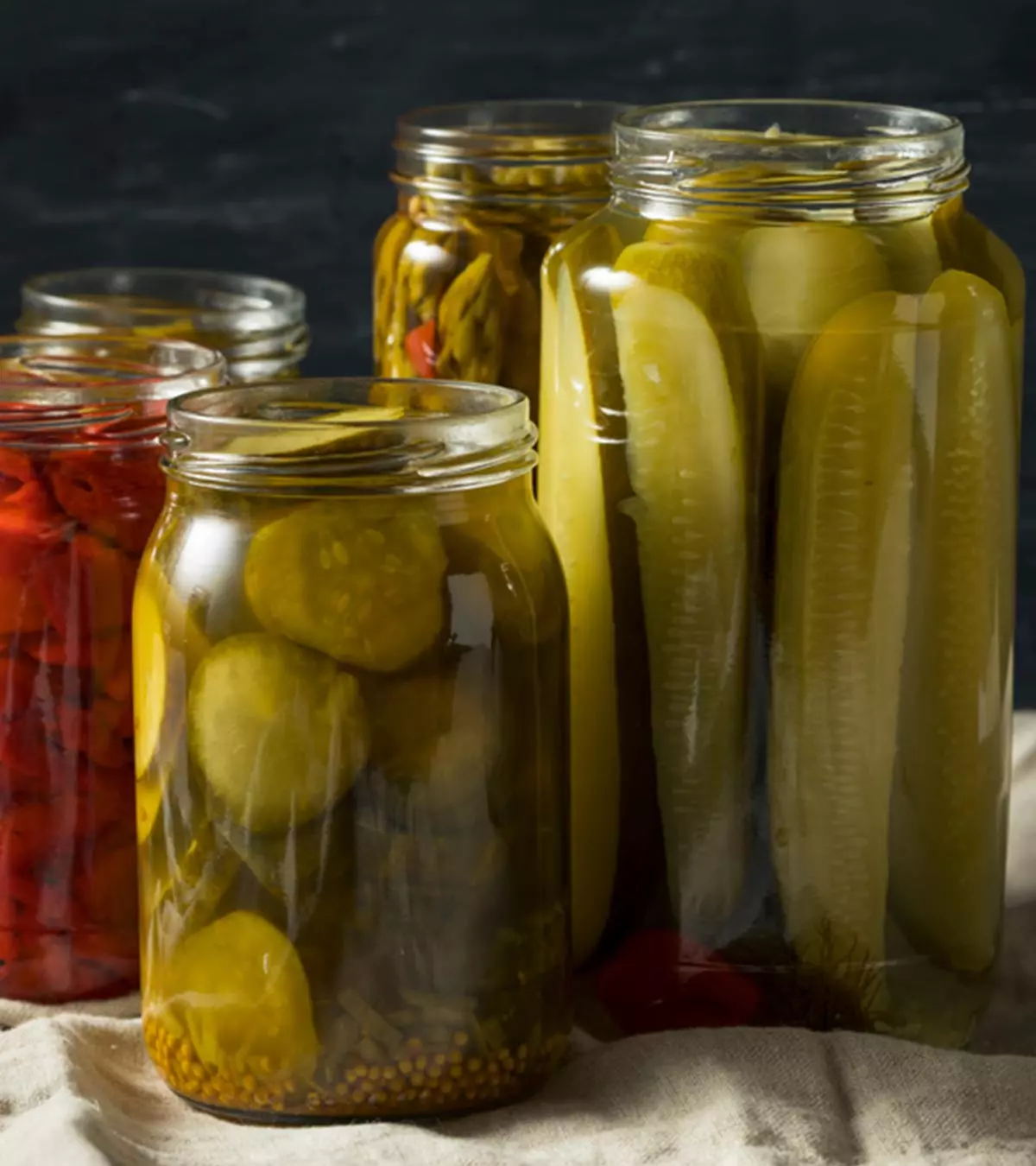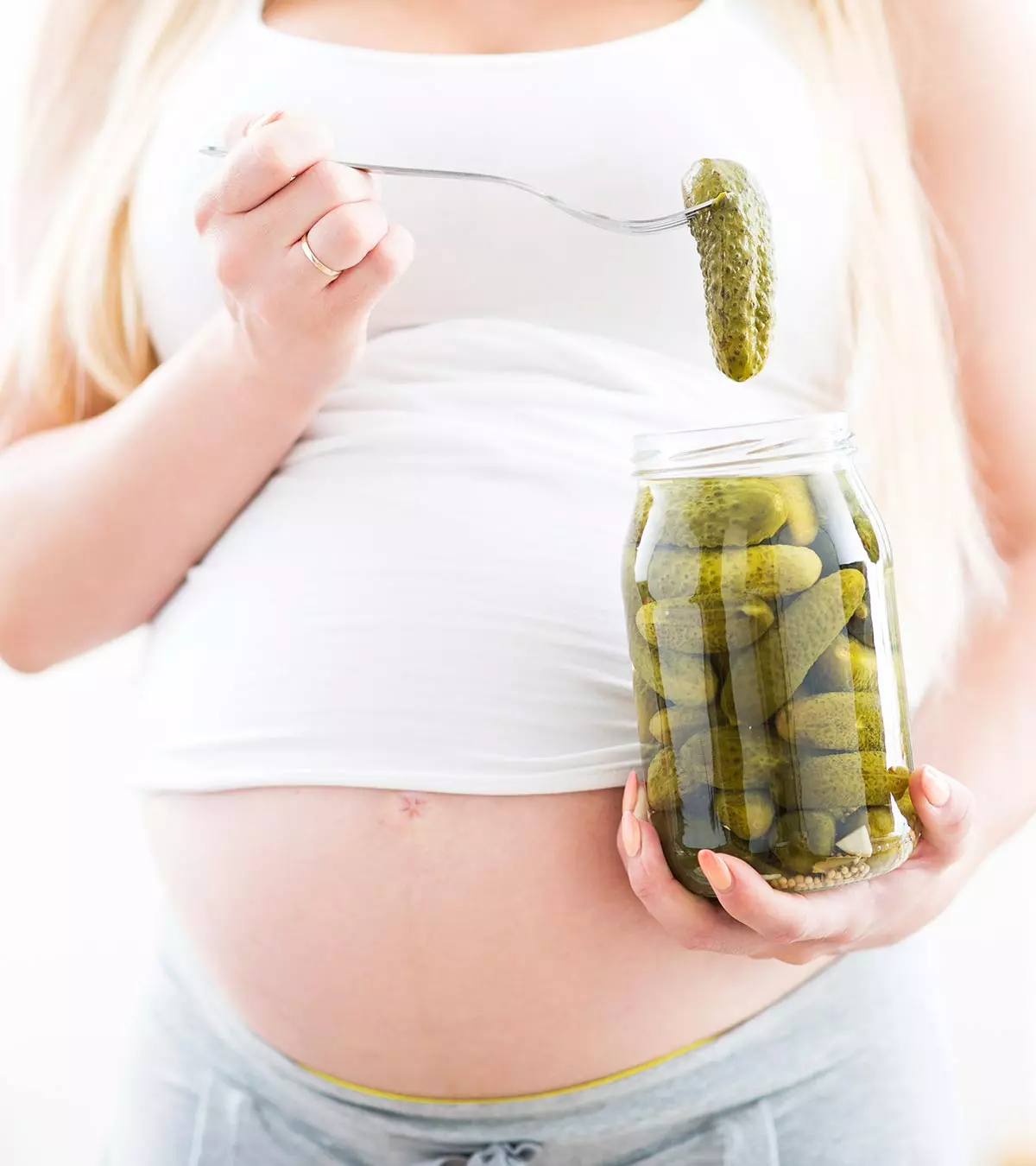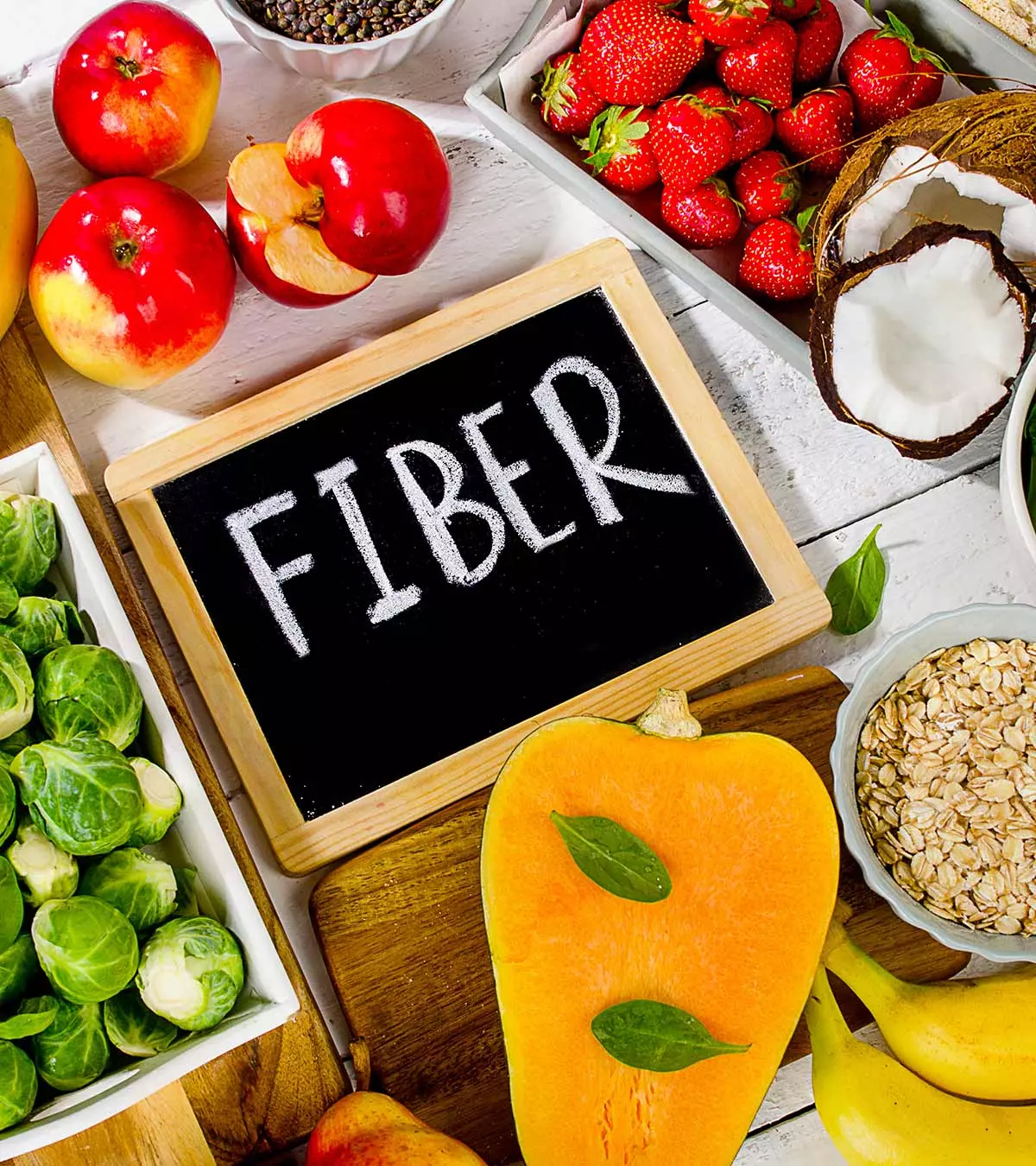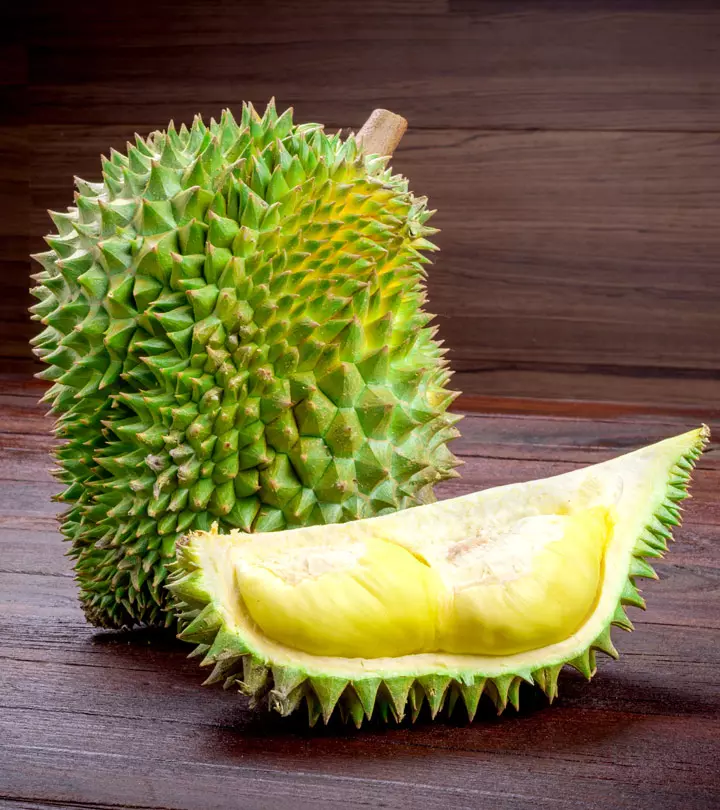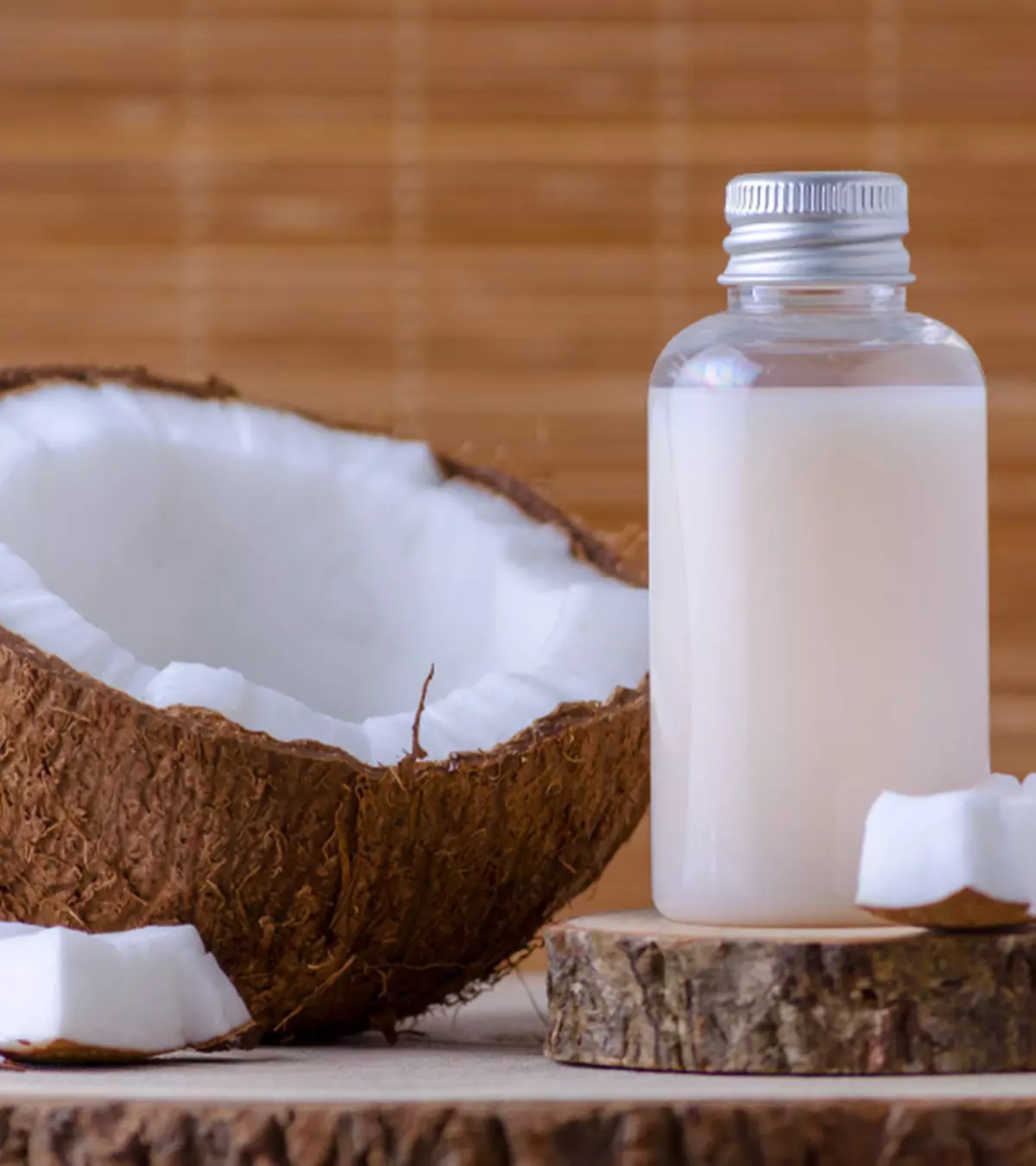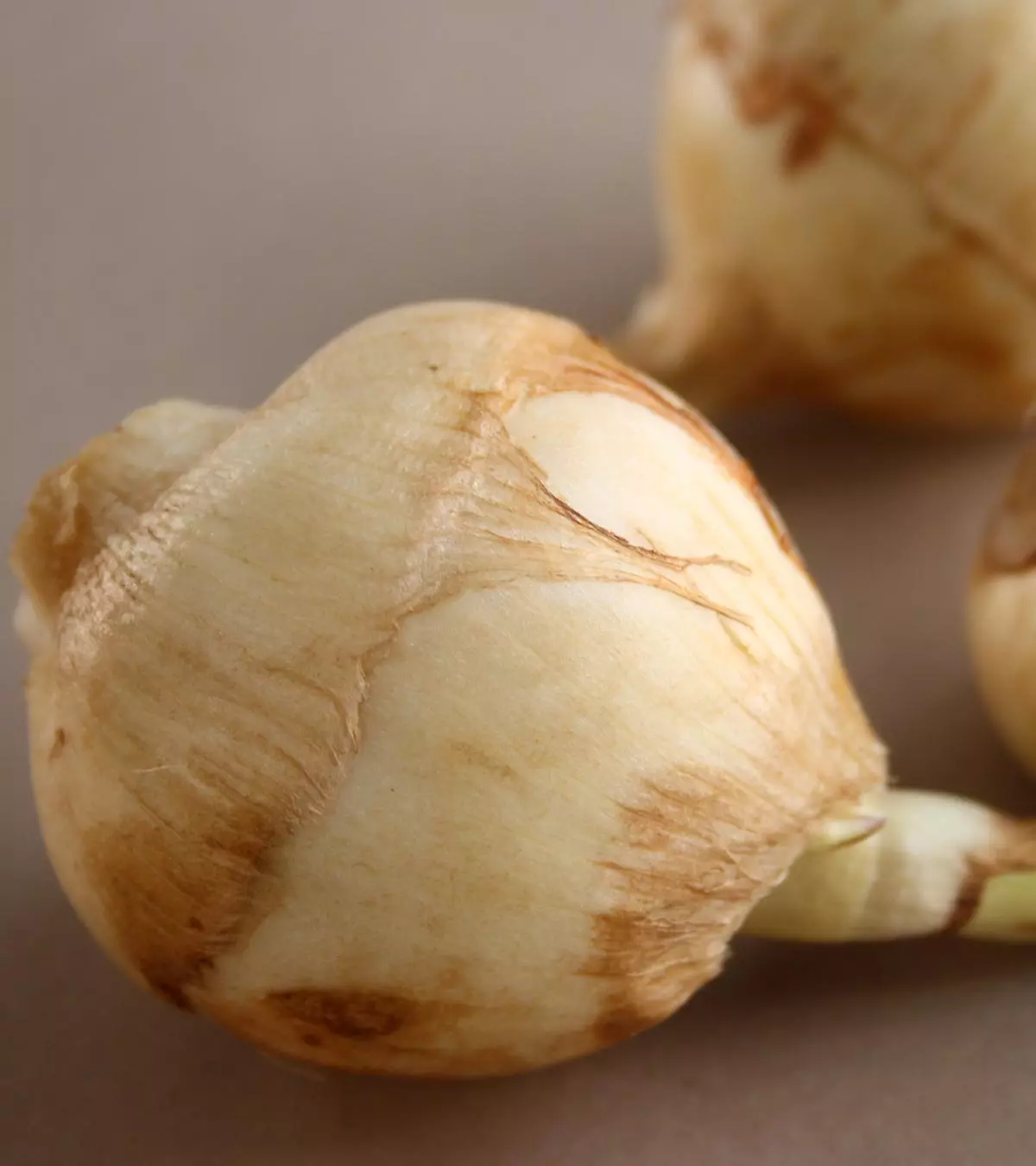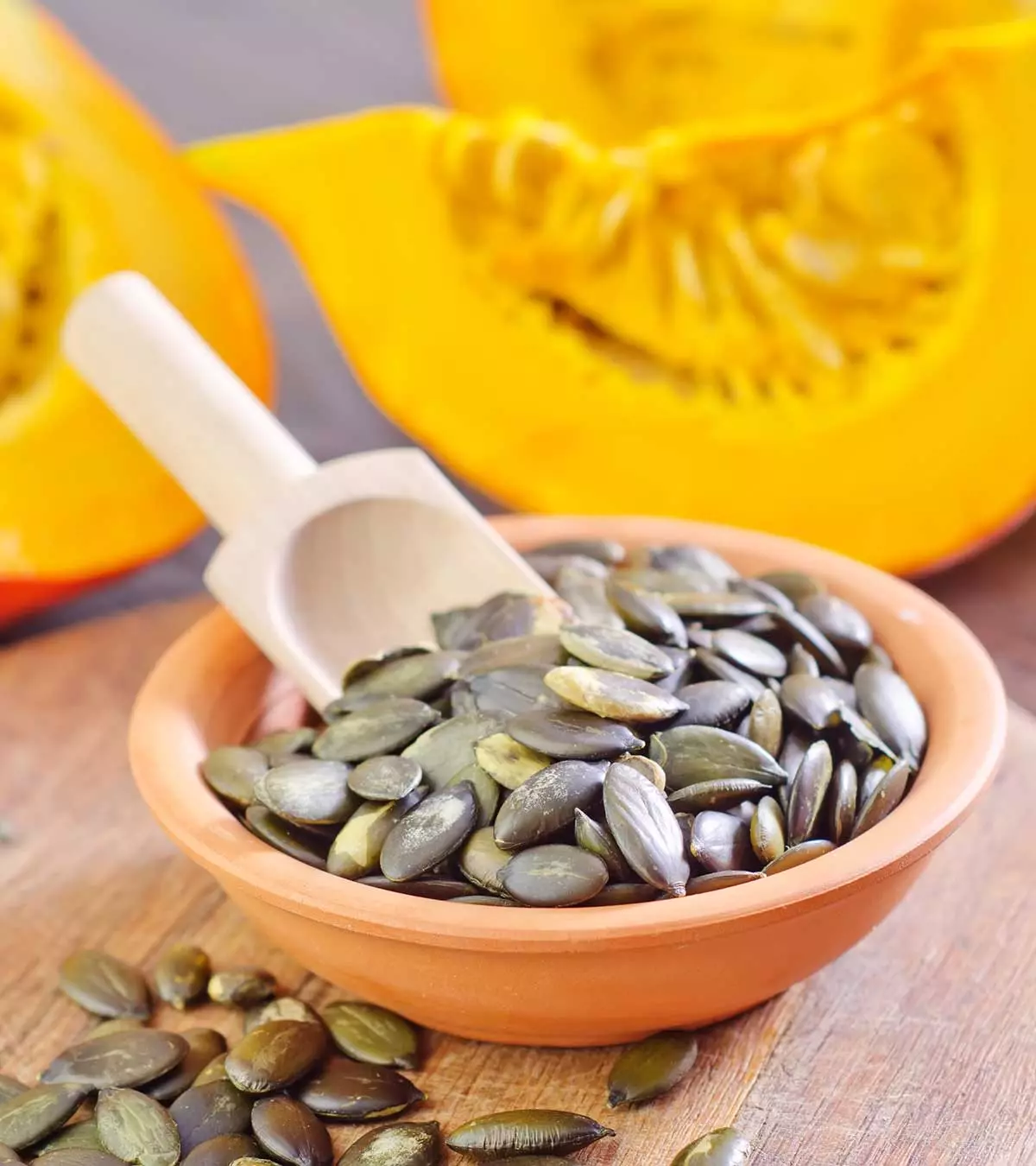
Image: Shutterstock
Can you drink kombucha when pregnant? If you are an expecting mom looking for an answer, reading the following post will help. Consumption of kombucha during pregnancy has been a semi-controversial topic. The increasing interest in kombucha has made it an ideal specimen for extensive research. Kombucha is a fermented beverage with tea, sugar, bacteria, and yeast. It is widely available in the market under various brand names and also can be made at home. Through fermentation, it acquires a cocktail of good bacteria and yeast, which is reported to aid overall good health (1). Read further and learn more about its benefits and safety during pregnancy.

Key Pointers
- Kombucha is a fermented drink produced commercially or domestically at home.
- It is widely believed that kombucha has many health benefits; however, they are not clinically proven.
- Kombucha consumption during pregnancy may harm fetal and maternal health.
Can You Drink Kombucha When Pregnant?

Using kombucha during pregnancy is generally not recommended as it contains alcohol and caffeine, which may adversely affect your prenatal health. Also, kombucha prepared in unclean surroundings may be a breeding ground for pathogenic microorganisms, such as Aspergillus (2). Alcohol consumption during pregnancy, even in minute quantities, can adversely affect the fetus’s health. It is associated with brain development and facial structure issues (3).
Does Kombucha Have Any Side Effects On Pregnant Women?

Over the past few years, there have been cases where adverse effects of kombucha consumption have been observed. Some of the side effects are listed below:
- Hepatic dysfunction: A study reports that kombucha consumption was shown to cause liver damage and renal failure (4).
- Metabolic acidosisiAccumulation of acid in the body due to kidney failure : Kombucha consumption has been linked to lactic acidosis, where the lactate content in the body is elevated (5).
- Anthrax infections: Anthrax Bacillus has been found in kombucha tea fermented in unclean conditions. Consumption of such beverages may cause side effects to the mother and fetus (6).
- Gastrointestinal problems: People with gastric sensitivity showed allergic reactions to kombucha. Other side effects of kombucha on digestive health that have been reported include jaundice, nausea, vomiting, and headache (7).
- Toxicity: Regular use of kombucha brewed in ceramic containers has caused severe lead toxicity (8).
- Caffeine overdose: Depending on the tea, the caffeine content in kombucha can vary. Excessive caffeine consumption can cause adverse effects in pregnancy as it passes the placental barriers (9). Keeping an account of all the caffeine-containing products consumed daily can help prevent exceeding the recommended daily dosage.
- Alcohol overdose: Kombucha is a fermented product that contains alcohol, which you should not consider during pregnancy (10). As per federal law,?? commercially available kombucha should be labeled alcoholic if the alcohol content is more than 0.5% by volume (11). According to an FDA investigation, the alcohol content in kombucha may range from 0.7 to 1.3% (2).
What Are The General Benefits Of Kombucha?
Kombucha is one of the natural remedies believed to potentially treat health conditions such as cancer, liver disorders, gastrointestinal disorders, hypertension, and acne.
There is a dearth of scientific evidence backing these claims. Most studies conducted are on animal models, and the effect on the human body is unknown. Possible health benefits of kombucha are listed below:
- Anti-carcinogenic: A study showed that kombucha could assist in boosting anti-cancer properties when combined with chemotherapy in colorectal cancer (12) (13).
- Antioxidant: It was noticed that biodegradation during fermentation released smaller molecules with higher antioxidant potential. An increase in antioxidant potential with a higher time of kombucha fermentation was observed (14). Heat-treated kombucha fermented tea showed decreased antioxidant activities (15).These antioxidants may support the immune system and improve certain immune responses.
- Anti-diabetic: The anti-diabetic potential of snake fruit kombucha was studied in diabetic rats. Rats administered with kombucha showed a decreased fasting plasma glucose content compared to the control group (16). Kombucha, through microbiota intervention, has demonstrated hypoglycemiciA condition characterized by low levels of sugar in the blood mechanisms and may be used for the treatment of diabetes (17) (18).
- Anti-inflammatory: Kombucha was administered to sepsis-inducediInduced by a severe reaction of the body to an infection mice, and anti-inflammatory compounds were produced through gut microbiota. Hence, kombucha may be used for treating sepsis-associated systemic inflammation (19).
- HypocholesterolemiciA condition in which total cholesterol (TC) level and low-density cholesterol (LDL) are extremely low : Traditional kombucha tea and modified kombucha tea have shown the potential to reduce cholesterol and may be used for treating obesity (20). In another study, administering butterfly pea flower kombucha to mice on a high-fat diet has shown the potential to decrease metabolic disorders (21).
- Antimicrobial: A study was conducted to investigate the antimicrobial properties of kombucha against different pathogens. Kombucha demonstrated an inhibitory effect against several pathogenic microorganisms??(22). Another study showed the antibacterial and antifungal potential of green and black kombucha tea fermented using a traditional kombucha culture (23).
How To Include Kombucha In Your Diet?

Kombucha is prepared by adding a symbiotic colony of bacteria and yeasts (SCOBY) into sweet tea. It is then allowed to ferment for a few days (26). Commercially available kombucha may be consumed directly from the bottle or mixed with other foods, such as salad dressing. Follow the instructions given on the product packaging before using it.
 Quick fact
Quick factWhat Precautions Should You Take When Using Kombucha During Pregnancy?

- Store in glass containers
If the kombucha is prepared at home, use glass containers to prepare and store the tea, as it would help prevent leakage of toxic elements into the beverage.
- Use sterilized utensils
Using clean and sterilized utensils may help prevent contamination.
- Ensure high-quality product
Since kombucha comes under probiotics, its production is not regulated. However, take care when selecting a commercially available brand.
What Are Some Safe And Healthy Kombucha Alternatives For Pregnant Women?
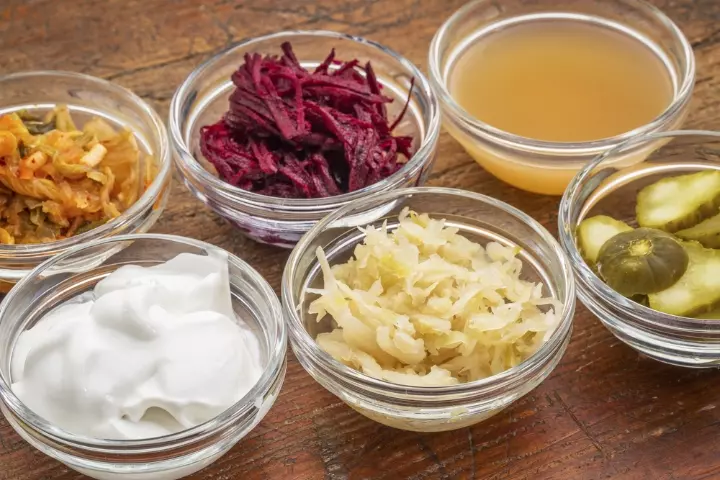
There are several probiotic-rich alternatives to kombucha. Yogurt, pickles, kefir, sauerkraut, miso, kimchi, tempeh, and sourdough bread are alternatives you can prefer during pregnancy (28). The consumption of these pregnancy-safe probiotics during pregnancy can provide you with various micronutrients, as well.
Frequently Asked Questions
1. Can I consume kombucha while trying to conceive?
Since kombucha is rich in probiotics and antioxidants, in addition to being good for gut health, it may also aid fertility (13). There are no scientific studies that suggest the effect of kombucha on the fertility of human beings. You may discuss it with your doctor before consuming the drink.
2. Can kombucha cause fetal alcohol syndrome?
Maternal use of alcohol during pregnancy can cause fetal alcohol syndrome (3). As kombucha contains alcohol, consumption may cause adverse effects.
3. Can Kombucha help with digestion during pregnancy?
While some people believe that kombucha aids in improving digestive health, there is limited scientific information about its effects during pregnancy. Thus it is crucial to speak to your doctor before consuming this drink (29).
Kombucha is a fermented functional beverage that may have certain health benefits. But since it’s an unpasteurized product, can you drink kombucha when pregnant? Kombucha consumption is not recommended during pregnancy, as evidence stating its safety in humans is limited. Many reports have surfaced where kombucha consumption has been associated with adverse outcomes. Despite being globally consumed, the lack of scientific authentication makes the safety aspects of kombucha during pregnancy questionable.
Infographics: Safe And Healthy Kombucha Alternatives For Pregnant Women
Even though kombucha cannot be an ideal supplement and source of good bacteria, there are other sources from which you may derive your daily dose of probiotics and nutrients. Look at the infographic below to know the foods you can use as an alternative to kombucha.
Some thing wrong with infographic shortcode. please verify shortcode syntax
Illustration: Can You Drink Kombucha When Pregnant?

Image: Stable Diffusion/MomJunction Design Team
References
- Mindani I. Watawana et al (2015) Health Wellness and Safety Aspects of the Consumption of Kombucha
https://www.hindawi.com/journals/jchem/2015/591869/ - Unexplained Severe Illness Possibly Associated with Consumption of Kombucha Tea — Iowa 1995
https://www.cdc.gov/mmwr/preview/mmwrhtml/00039742.htm - Kenneth Lyons Jones (2011) The effects of alcohol on fetal development
https://onlinelibrary.wiley.com/doi/abs/10.1002/bdrc.20200 - Alison SungHee Kole et al. (2009) A Case of Kombucha Tea Toxicity
https://journals.sagepub.com/doi/10.1177/0885066609332963 - Ailsa Holbourn et al (2017) Kombucha is a cup of tea good for you?
https://www.ncbi.nlm.nih.gov/pmc/articles/PMC5747697/ - Rasu Jayabalan et al (2014) A Review on Kombucha Tea-Microbiology Composition Fermentation Beneficial Effects Toxicity and Tea Fungus
https://www.academia.edu/28688808/A_Review_on_Kombucha_Tea_Microbiology_Composition_Fermentation_Beneficial_Effects_Toxicity_and_Tea_Fungus - Radhika Srinivasan et al (2002) Probable Gastrointestinal Toxicity of Kombucha Tea
https://onlinelibrary.wiley.com/doi/abs/10.1046/j.1525-1497.1997.07127.x - Tri Giang Phan et al (1998) Lead poisoning from drinking Kombucha tea brewed in a ceramic pot
https://onlinelibrary.wiley.com/doi/abs/10.5694/j.1326-5377.1998.tb123448.x - Jongeun Rhee et al (2015) Maternal Caffeine Consumption during Pregnancy and Risk of Low Birth Weight A Dose-Response Meta-Analysis of Observational Studies
https://journals.plos.org/plosone/article?id=10.1371/journal.pone.0132334 - Kombucha and Pregnancy: Answers to Your Brewing Questions.
https://mothertobaby.org/baby-blog/kombucha-pregnancy-answers/ - Kombucha
https://www.ttb.gov/kombucha - Latifeh Rasouli et al (2025) Evaluation of cytotoxicity and anticancer activity of kombucha and doxorubicin combination therapy on colorectal cancer cell line HCT-116
https://www.ncbi.nlm.nih.gov/pmc/articles/PMC8641728/ - Silvia AlejandraVillarreal-Soto et al (2019) Impact of fermentation conditions on the production of bioactive compounds with anticancer anti-inflammatory and antioxidant properties in kombucha tea extracts
https://www.sciencedirect.com/science/article/abs/pii/S1359511318316416 - Rania F.Ahmed et al (2025) Biological chemical and antioxidant activities of different types Kombucha
https://www.sciencedirect.com/science/article/pii/S057017832030018X - Elok Zubaidah et al (2018) Anti-diabetes activity of Kombucha prepared from different snake fruit cultivars
https://www.emerald.com/insight/content/doi/10.1108/nfs-07-2018-0201/full/html - Suyun Xu et al (2025) Kombucha Reduces Hyperglycemia in Type 2 Diabetes of Mice by Regulating Gut Microbiota and Its Metabolites
https://www.mdpi.com/2304-8158/11/5/754 - Thummala Srihari et al (2013) Antihyperglycaemic efficacy of kombucha in streptozotocin-induced rats
https://www.sciencedirect.com/science/article/abs/pii/S1756464613001928 - Penghui Wang et al (2025) Kombucha ameliorates LPS-induced sepsis in a mouse model
https://pubs.rsc.org/en/content/articlelanding/2025/fo/d1fo01839f/unauth - Zhi-Wei Yang et al (2008) Hypocholesterolaemic and antioxidant effects of kombucha tea in high-cholesterol fed mice
https://onlinelibrary.wiley.com/doi/abs/10.1002/jsfa.3422 - Happy Kurnia Permatasari et al (2025) Modulation of gut microbiota and markers of metabolic syndrome in mice on cholesterol and fat enriched diet by butterfly pea flower kombucha https://www.sciencedirect.com/science/article/pii/S2665927122001228
- Guttapadu Sreeramulu et al(2000) Kombucha Fermentation and Its Antimicrobial Activity
https://pubs.acs.org/doi/abs/10.1021/jf991333m - Houda Battikh et al (2012) Antibacterial And Antifungal Activities Of Black And Green Kombucha Teas
https://onlinelibrary.wiley.com/doi/abs/10.1111/j.1745-4514.2011.00629.x - Yong Wang et al (2014) Hepatoprotective effects of kombucha tea identification of functional strains and quantification of functional components
https://pubmed.ncbi.nlm.nih.gov/23716136/ - Debashish Banerjee et al (2010) Comparative healing property of kombucha tea and black tea against indomethacin-induced gastric ulceration in mice: possible mechanism of action
https://pubmed.ncbi.nlm.nih.gov/21776478/ - Raquel Macedo Dantas Coelho et al (2025) Kombucha: Review
https://www.sciencedirect.com/science/article/abs/pii/S1878450X20301499 - Peyton Bishop et al (2025) Kombucha: Biochemical and microbiological impacts on the chemical and flavor profile
https://www.sciencedirect.com/science/article/pii/S2772753X22000144 - How to get more probiotics
https://www.health.harvard.edu/staying-healthy/how-to-get-more-probiotics - Gut Health
https://www.betterhealth.vic.gov.au/health/healthyliving/gut-health
Community Experiences
Join the conversation and become a part of our nurturing community! Share your stories, experiences, and insights to connect with fellow parents.
Read full bio of Hannah Whittaker
Read full bio of Shinta Liz Sunny
Read full bio of Swati Patwal
Read full bio of Lorraine Teron

 Research finds
Research finds






